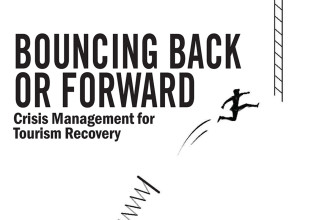
The entire world continues to struggle with economic crisis years into the Covid pandemic. With travel restrictions, supply disruptions, work coming to near standstill during lockdowns, and government interjection in economic activities, business is nowhere near normal and neither will it be considering that we now need to redefine what is normal. Disruption also came in the form of the Russia-Ukraine war that continues unabated. Geopolitics and economic diplomacy have taken centre stage as countries globally must now decide who are their real partners. There is lack of money everywhere and trade movement is restrained. Nepal is not left behind in feeling the perils of the economic slowdown, especially with cost of living and cost of doing business escalating.
Currently, Nepali banks and financial institutions are facing crisis in loanable funds, banks are merging, and there is a general sense of public alarm as to whether Nepal can ride the wave of economic uncertainty.
In this issue of Business 360, we spoke to Upendra Poudyal, Chairman of Nabil Bank with decades of experience in the banking sector, on his thoughts about situation.
We had approached several banks to get a wider range of opinions but many declined to speak about the current banking and banking policy scenario due to various reasons. Here is what Poudyal had to share:

Upendra Poudyal
Chairman, Nabil Bank

Immediate problems to address
One of the biggest problems at present is the crisis of confidence. It is extremely important to trust the banking sector but the general public still haven’t been able to do so fully. During 1980s, the country’s GDP was only $2.6 billion which has now risen to $132 billion. The banking sector has contributed tremendously to this increase in the GDP. Nepal’s banking sector has evolved over the years. Previously, banks were considered superior entities and had a monopolistic approach towards businesses. However, banks now are more customer oriented with focus on providing better services because if they don’t it will be difficult to survive in this highly competitive market. Banks have played a leading role in raising the country’s economy but this has never been highlighted. The sector is one of the most transparent and the profits we make are huge which is highlighted everywhere but the impact and contribution we have been making are always overshadowed by the general thought that we care only about profits. As per instructions of Nepal Rastra Bank, we invest in areas that need immediate care and attention for the benefit of the people and we have a considerable impact. But it is our shortcoming that we have not been able to demonstrate the impact we have had and the perspective towards us is that of only earning huge profits. This is caused by a few factors like other sectors are not transparent and do not disclose their turnover, performance, profit ability whereas, banks are well regulated and we submit all details to the government on an annual basis. We disclose all details but people seem to only notice our profits and due to this there is a crisis of trust. This is a global crisis and not limited to Nepal alone. People need to break this mentality and understand the relentless contributions made by banks in uplifting the economy. For example, over the last couple of decades Nepal has been shifting from agriculture to other sectors like manufacturing industries and businesses. There has been active contribution and investment of banks in increasing the status. Similarly, we have contributed in hydropower too and we are now able to generate enough energy and also export to our neighbouring country and there has been an end to the load-shedding problem. Another issue is that businesses are being conducted with a single bottom line which is questioning the resiliency of banks. The looming question is will banks be able to absorb the shocks that we are facing at the moment. The current issue due to this is the liquidity crisis, meaning there is lack of loanable funds. Banks previously were more profit-driven and were investing where there was little turnover instead of in the real economy and productive sector. Now, we don’t have the funds to invest in the real economy which is causing a problem in the country. This particular aspect has questioned the whole banking sector but I believe we can absorb this shock as we have faced problems in the past such as the decade-long Maoist Insurgency. The banking sector remained intact even when there were multitude problems. Similarly, in the aftermath of the earthquake of 2015 the economy was at a standstill which was followed by the blockade in the southern borders yet we were able to sustain. Likewise, when the situation started normalising after the Covid 19 pandemic when the economy was again at a total standstill, there was a good flow of loans in the market giving rise to competition among banks. All the banks wanted to be the number one bank of the nation and increase their balance and size. It was a natural phenomenon as I like to call it but during all this, we forgot to think about the general population and its after-effects. Another problem I would say is the structural problems which have caused a major setback. Banks have to be in sync with the international market. Nepal has the capacity to be at par with the international market except in one area which is digital transformation. To match the pace and get along with recent developments, the main issue for banks is the cost of doing business which needs digital transformation but it is very weak in Nepal at the moment. It is an important factor but we have a long way to go. Moreover, if we don’t move forward with the concept of responsible and sustainable banking, the banking system won’t be able to keep pace with the international system. We have lesser resources when it comes to making changes in the banking sector and to be in pace with the world and the global economy. We have to take support from others and to get the support we have to comply with international standards. Also, if we don’t have sound governance, international support can be hindered.The important role of government
The government has an important role to play which is related to its capital expenditure. Government activities should be focused on the real economy which will help in income generation within the country itself. If we look at the current situation it might not be directly linked to the banking sector but keeping in mind the economic system, the government should be focused on the real economy which will help the trade imbalance we are facing. Our country is a consumption-led economy and to shift into a production-led economy, we should focus more on the productive sector that can help in sustaining the country. Self-reliance is important and the first two priorities should be energy and food security and then comes medical security. If these three aspects are managed, there will be less consumption of foreign goods. Similarly, funds need to flow into the system properly and to make that possible, the money that the government separates in its budget for capital expenditure should be flowing into the banking system. The governments funds are either in Nepal Rastra Bank or Rastriya Banijya Bank. They have surplus funds so if the other banks of the country are suffering, why not distribute the funds to balance out the liquidity problem? There are initiatives to distribute funds at the local level but by keeping government banks in priority, however I fell everyone should be getting the same treatment. The government could study the bank’s resilience and performance and choose to disburse funds with certain criteria.The governments funds are either in Nepal Rastra Bank or Rastriya Banijya Bank. They have surplus funds so if the other banks of the country are suffering, why not distribute the funds to balance out the liquidity problem? There are initiatives to distribute funds at the local level but by keeping government banks in priority, however I fell everyone should be getting the same treatment. The government could study the bank’s resilience and performance and choose to disburse funds with certain criteria.When the government implements projects and there is capital expenditure, and there will be foreign aid and funds, so the government can help facilitate the funds to stay in the country and make it easy to bring them in. There are plenty of risk factors in expenditure and if the government steps further to promote it and bear a certain amount of exchange risk, there is a huge possibility of smooth income generation. If the government chips in the risk rate, a lot of problems can be solved as this is not a problem of only banks or businesses but of the whole nation. To regulate the banking system, we have to think about the future as well and to keep pace with the international system and trade, we need to understand the best practices and bring them into the system. For example, we started sustainable banking and other countries have a finance road-map but Nepal doesn’t have one. In the coming days, if sustainable banking is the future we must have it prepared now to face the changes. Also, the erstwhile prime minister has spoken at the COP 26 that our country will be net zero in terms of climate change but to fulfil the commitment, the funds have to be flown by the banks and if we are not able to do so, there can be a situation of distrust in the international market. In the end, to compete with others, we have to have a road-map to show us a clear path for our future plans.
The road to recovery
Real economy, sustainable banking, and responsible banking are the way towards recovery. We have to focus on import substitution, and look out for comparative advantages such as tourism, hydropower and service sector, making them a priority. We also have to focus on industrialisation but at a certain level because we have a huge neighbouring country with manufacturing industries that can churn out cheaper goods than those made here in Nepal. In my opinion, tourism and hydropower can change the fate of our country. Export of energy is required and if we are able to export to just Asia, it will be enough to sustain the country. For this to happen, all the stakeholders should be on the same page as hydropower projects take millions of rupees to construct. Banking touches the life of all and is important in every aspect. We have to take banking as a support engine to grow and banks should be recognised by all stakeholders. Banks have been walking together in every step of development so it should be recognised as a stepping stone in achieving the necessities. The road to recovery is to trust banks and to understand the needs of the country and support the banks as and when needed. READ ALSO:
Published Date: February 1, 2023, 12:00 am
Post Comment
E-Magazine
RELATED Opinion





